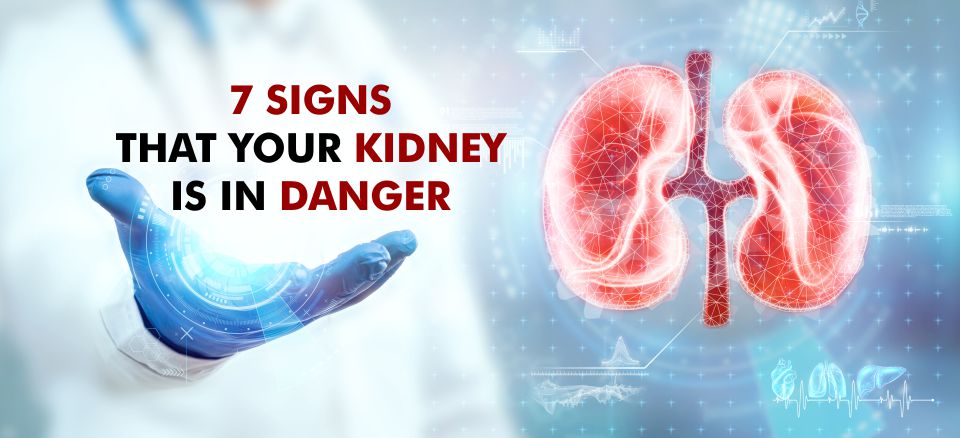


[vc_row][vc_column][vc_column_text]Have you ever thought of taking care of your internal organs like you take care of your outer looks?
Most of us would say ‘No’. Quite often we forget that they are most crucial for proper functioning of the body. Yet, our carefree attitude often puts our health at risk of complications. One such complication being ‘chronic kidney disease’.
Every year, around the globe, 1 in 3 adults report having trouble with their kidneys. According to recent reports, chronic kidney disease stands at 12th position worldwide, for causing the most number of deaths. However, the rank seems to be increasing irrespective of the modern enhancements in the medical industry.
Delayed treatment and lack of awareness about signs of kidney disease lead to kidney problems. Thus, to fight off kidney diseases, everything boils down to one factor, that is catching these signs at the initial stages and then proceeding with the optimal treatment procedures.
To make you aware, we have addressed all the concerning signs and symptoms of kidney problems. Read through to know which signs are serious enough and should never be ignored, putting one’s health at stake.
The first and foremost sign indicating urinary tract malfunction is a change in the pattern of urination. The early concerning symptoms that your kidney is in danger include frequent urination during the night, a change in the urine color of the urine to dark yellow or red, urinating more or less than usual, the constant feeling to pass urine without being actually able to urinate.
Some other symptoms of kidney problems, you may experience:
All these signs are highly worrisome and should be addressed upon as soon as you observe them, without any delay.
If you notice that your urine has turned red or there’s frank blood in the urine, it should raise a red flag that your kidneys are at risk. It’s another critical sign that points to housing an unhealthy kidney, bladder or the prostate. The condition is referred to as hematuria. It is highly imperative to consult a kidney specialist for contemplating the exact cause of blood in urine and then have a substantial treatment.
The primary function of the kidneys to flush out the toxins and impurities from the body gets disrupted when it gets infected. The process of excreting wastes is hindered when this function of the kidney gets impaired.
This leads to the build-up of toxins, excess water & salt in several body tissues. Ultimately the ankle, legs, hands, face, and feet, all end up getting swollen.
Severe malfunctioning can lead to retention of water in the lungs as well, which leads to shortness of breath. Prolonged puffiness in the eyes is also a sign that indicates that your kidney may be in danger.
Loss of appetite in patients is a common sign of kidney failure. This causes sudden weight loss and undernutrition in patients, so persistent loss of appetite is a sign that indicates that your kidneys may be at risk.
Maintaining a balanced diet, consuming healthy food, and regularly consulting a urologist are the best ways to fight kidney disease.
When the kidneys cease to perform their secondary function of creating red blood cells, it results in anemia. This decrease in red blood cells hinders the seamless supply of oxygen and nutrients throughout the body, leading to failure of cellular metabolism. Due to anemia arises extreme fatigue, nausea, and tiredness.
With consistent deterioration of the kidneys, there is a gradual degradation in the functioning of other systems like the musculoskeletal system. Dizziness, memory loss, decreased stamina, muscle cramps, bone pains and nausea are the signs that signify that your kidney is in trouble.
If you or your family members have a history of renal stone disease or obesity, your kidneys might be at risk. Renal stone disease is a common problem in North India and many people observe passage of small stones or gravel in the urine. It’s just the tip of the iceberg and needs a thorough evaluation and management, to prevent recurrence of stones and onset of chronic kidney disease.
Failing to control your blood pressure imposes an imminent threat to renal health. As per recent reports, high blood pressure stands to be a significant cause of brain stroke, heart attacks, and kidney failure.
Thus, it is highly imperative to cut down the consumption of dietary supplements that add to increasing blood pressure.
Borderline high blood pressure and hypertension are some of the major causes that can inflict kidney diseases.
If you are experiencing any of the symptoms, it is highly crucial to consult an expert kidney specialist. Known for delivering commendable and consistent healthcare services, Amandeep Hospital houses the most proficient team of kidney specialists in Amritsar.
Transforming the healthcare industry by meeting global standards, the hospital serves round the clock to deal with kidney patients and treat the disease. Our top-notch medical and surgical treatments have helped many patients fight kidney disease and resume a healthy lifestyle.
For any queries related to signs of kidney problems or if you doubt having kidney disease, connect with us right away![/vc_column_text][/vc_column][/vc_row]
September 30, 2024
Recognize the Signs: Understanding Appendicitis Pain Symptoms
September 24, 2024
Unveiling the Truth: I-Pill Side Effects Every Woman Should Know
We use cookies to enhance your experience. By clicking "Accept", you agree to our use of cookies.